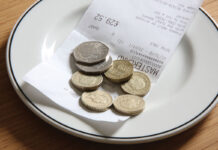

IT was supposed to be a root and branch reform, making licensing law fit for the 21st century.
Yet, the Licensing (Scotland) Act 2005, in operation for just two years, has turned out to be little more than a clothes horse upon which have been piled more than two dozen regulations. These include amendments effected by the Criminal Justice and Licensing (Scotland) Act 2010 and now a series of complex changes to be introduced from October 1, when the Alcohol etc (Scotland) Act 2010 takes effect.
A round of applause for the trade groups that have produced guides to the Alcohol Act.
The law has become a jigsaw with many pieces and putting them together is an exercise that taxes even specialist licensing lawyers. How operators are expected to stay up to date is quite beyond me.
So, a round of applause for the Scottish Wholesale Association, the Scottish Grocers’ Federation and the Scottish Beer and Pub Association.
The SWA and SGF have produced an excellent fingertip guide to the new rules as they affect convenience store
operators (available at www.alcoholcompliancescotland.co.uk), while the SBPA’s ‘challenge 25’ website is an invaluable source of help with the new requirement for age-verification policies. (Educating the public is, of course, an entirely different matter and some of the large retailers are complaining about the dearth of information from the Scottish Government, fearing that they will attract blame from unhappy customers denied their familiar drinks bargains.)
At the heart of the latest changes is a crackdown on incentives to make multiple alcohol purchases at advantageous prices.
The Alcohol Act introduces linear pricing, but only where the product may be purchased singly: for example, if a can of lager is available for sale at £1, four cans of that product cannot be sold for less than £4.
But where a product is packaged in different containers, even in the same quantities – for example, a lager available in both 500ml cans and
500ml bottles – these are
regarded as different alcoholic products. Thus, making just the cans available for individual purchase at £1 would
not preclude the sale of a four-pack of the bottles for less than £4.
Where no single units of a product are on the shelves, linear pricing does not apply: so, if a six-pack costs £6, there is nothing to stop a 12-pack being offered for sale at £10.
How operators are expected to stay up to date with the law is quite beyond me.
The ban on ‘buy one, get one free’, ‘buy three for the price of two’ and similar deals based on multiple purchases, presently affecting only the on-trade, will be extended to off-sales. It also applies to multi-packs.
Products may, however, continue to be placed on special offer. For example, a 20 per cent reduction on a bottle of wine is perfectly legal, provided (a) the discount is introduced at the start of a period of licensed hours; and (b) runs for a minimum of 72 hours.
The off-trade will welcome a partial modification of the so-called ‘72-hour rule’.
Originally, where the price of any product was varied, that change ‘froze’ the price of all alcohol for a period of 72 hours.
The Alcohol Act changes the rule – but only for off-sales – so that the price variation only requires to be maintained for the requisite period in relation to the particular product.
Space limitations prevent me from embarking on a more detailed exploration of the other changes, which include restrictions on the location of alcohol promotions in specialist off-sales shops, convenience stores and supermarkets.
However, I think it’s important to add a word of warning about the implementation of age-verification policies.
Since last I covered the subject on this page I have come across suggestions that acceptable forms of proof-of-age include “licensing-authority approved” cards, national identity cards and armed forces cards.
Make no mistake. Where a customer seeking to purchase alcohol appears to be under the age of 25 (or such higher age as may be specified in the policy), no sale should be made unless he or she is able to produce a passport, EU photocard driving licence or a card bearing the PASS scheme hologram.
If none of these can be produced, the sale should be refused.




















